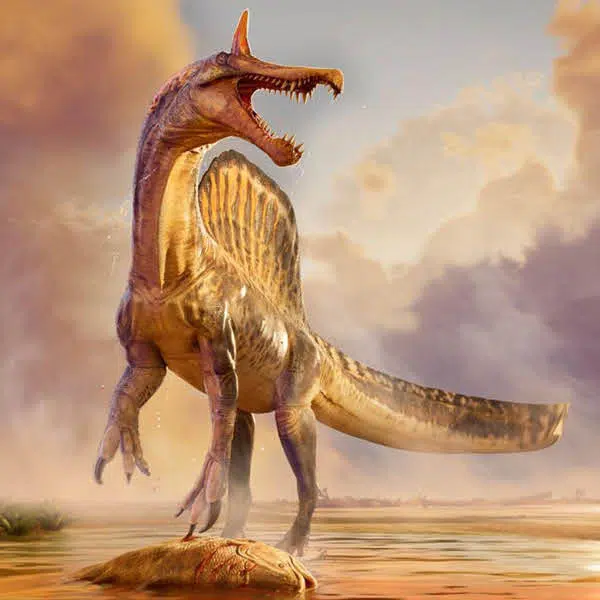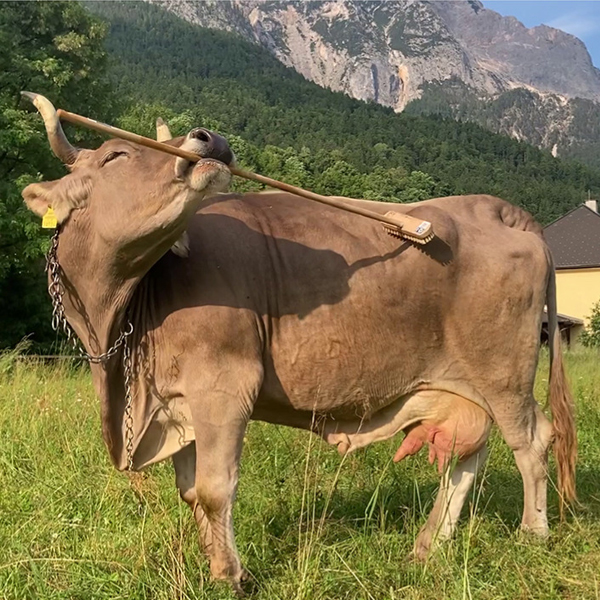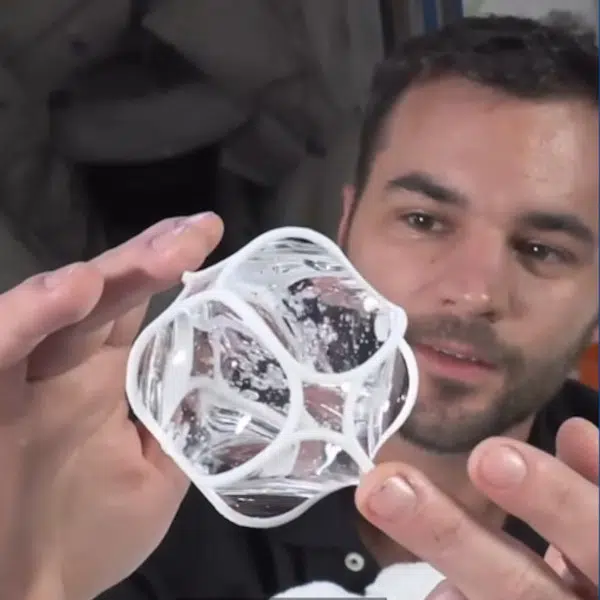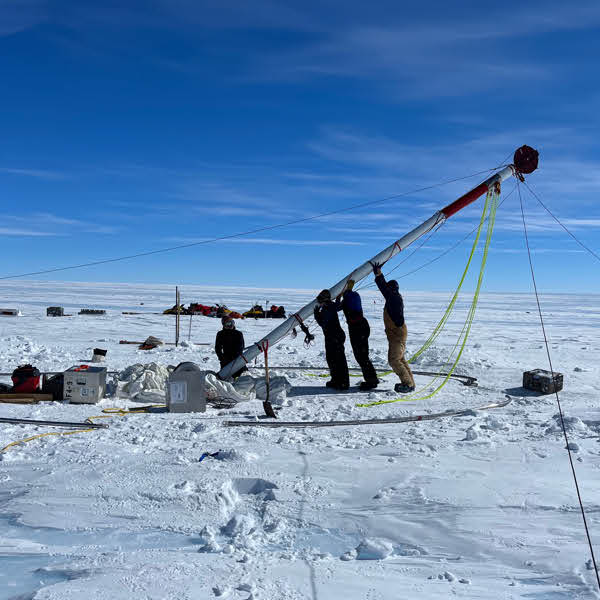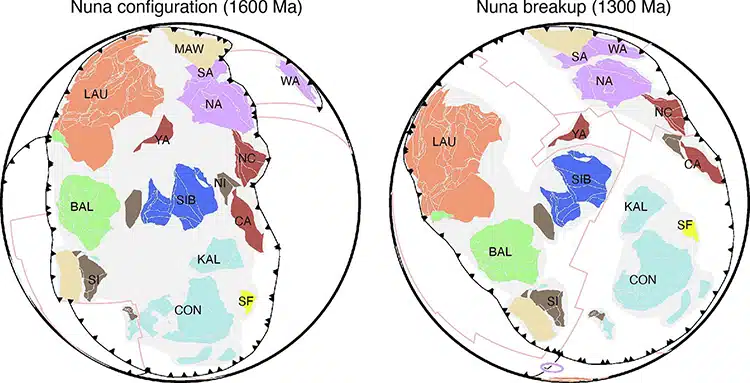
Photo: Cao et al.
In grade school, you likely learned that Earth's crust is split into tectonic plates. These plates move slowly each day, imperceptible to us, but they create such impressive and obvious features as the Himalayan mountains and the Mariana Trench. But the science of plate tectonics have a lot more to teach us than how Pangea became our present-day continents. The break-up and make-up of repeated supercontinents can shed light on how a changing environment became hospitable to complex life. A new video created by researchers, whose paper was also published in Geoscience Frontiers, shows the tectonic plates moving across the globe over 1.8 billion years.
The video begins in the present day and progresses backward, counting by the “Ma” or millions of years ago. Pangea appears around 200 Ma. Eventually, the recombination of land masses produces Rodinia, another supercontinent. Lastly, Nuna—a third supercontinent—appears 1.35 million years ago. For the continual shifts, the eye can track the edges of the tectonic plate as mapped. They carry colorful continents, and the edges feature arrows indicating the movements. “Modelling our planet's past is essential if we're to understand how nutrients became available to power evolution,” writes co-author Alan Collins for Science Alert.
Based on three other published models, this new video is not only aesthetically impressive but academically valuable. Models allow for a better understanding and research of Earth's geological past.
The authors conclude, “Our model spans three supercontinents and more than two supercontinent cycles. We have produced a new tectonic framework for analyzing the long-term evolution of Earth systems, providing a basis for developing future analysis of tectonic controls on deep Earth resources and developing planetary hypsographic reconstructions that can inform lithosphere/earth surface systems feedbacks.”
In short, we can only truly understand how our Earth formed by learning how its surface has moved through time.
Watch this amazing video by researchers demonstrating how the Earth's tectonic plates have moved, carrying their land masses with them.
h/t: [Science Alert]
Related Articles:
Insightful Animated Video Sums up 4.5 Billion Years of Earth’s History in 60 Minutes
Interactive Map Reveals How Your Hometown Moved Over Earth During Millions of Years
How to Crochet: Learn the Basics of This Time Honored Handicraft
Artist Fills Forest with Life-Size Sculptures Made from Woven Rods of Willow











































































